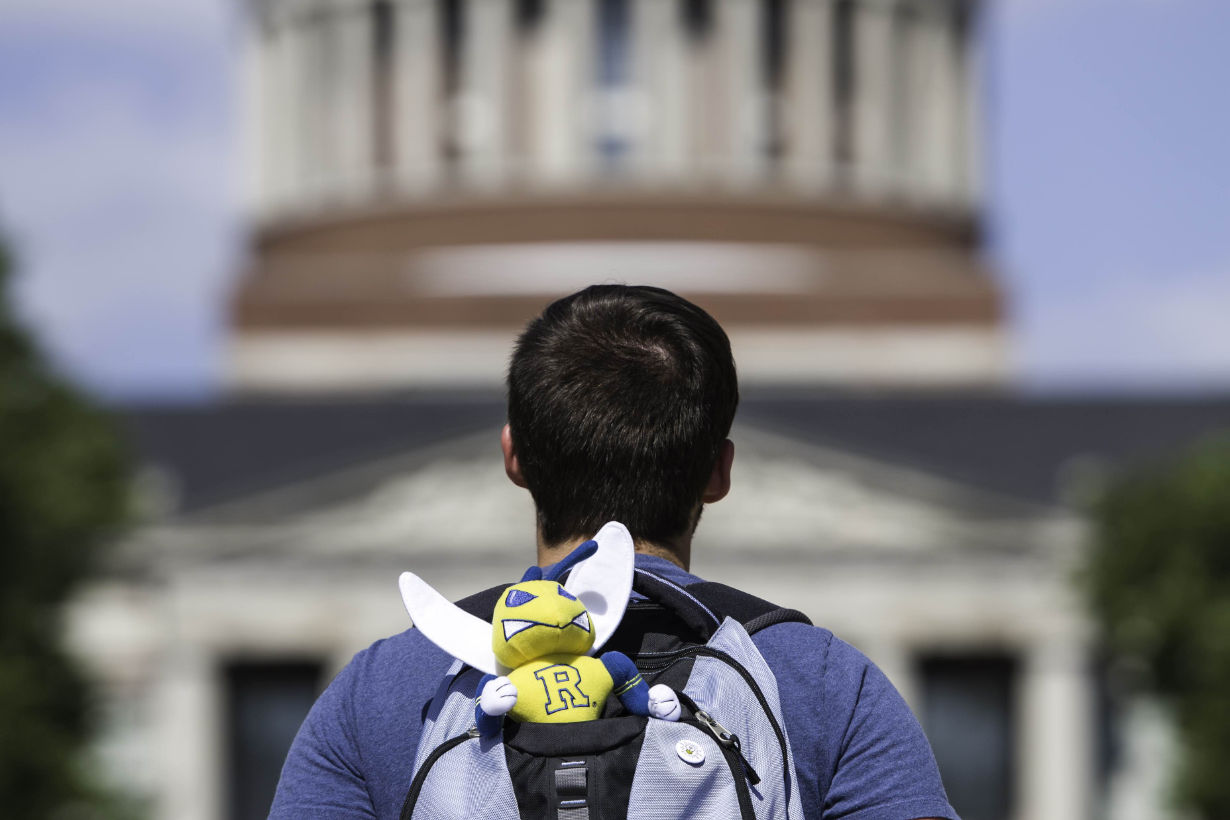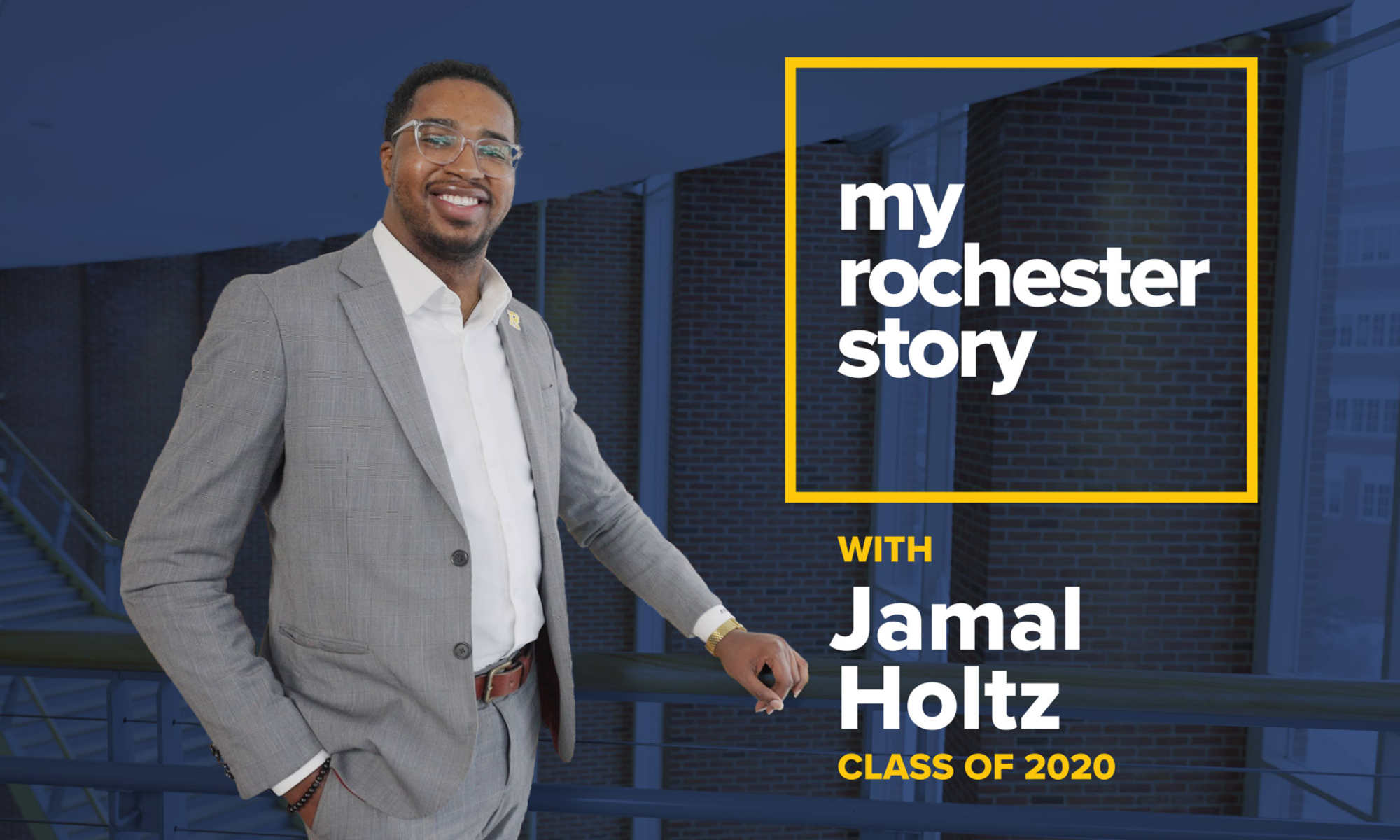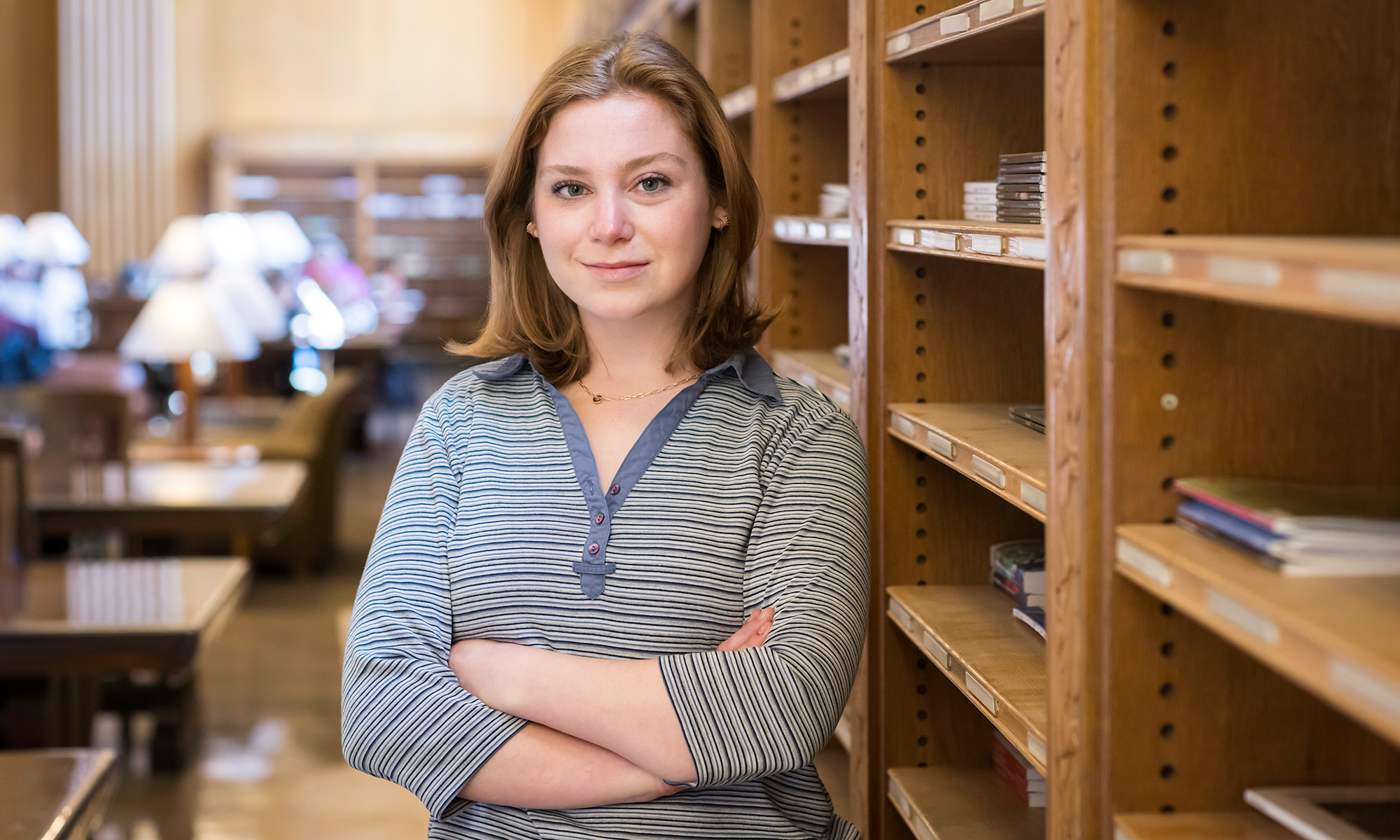At Rochester, the German native forged her path to a career analyzing international relations in an interconnected world.
Lea Thome ’22 has lived all over the world, but Rochester, New York, holds a special place in her heart.
“Rochester is where I found myself and discovered what I wanted to do with my life,” she says.
Thome spent her first 15 years in Germany, then attended boarding school in China for a semester and in Slovakia for two years before enrolling at the University of Rochester. After graduation, she returned to China for a year as a Schwarzman Scholar, earning a master’s degree in global affairs. The globetrotting continued: She moved to Washington, DC, then spent a summer conducting research in Taiwan and the Republic of Georgia, a former Soviet republic.
These days, Thome is a program manager at AidData, a research lab at the College of William and Mary in Williamsburg, Virginia. Her job often takes her to Washington, where she analyzes Chinese development finance issues and helps connect policymakers with data-driven research. Her work has appeared in such publications as The Hill, South China Morning Post, and The Diplomat. She also has written pieces for AidData on a Chinese-funded megaport in Peru, China’s custom inspection scanners, and on its mining operations in Peru and the Democratic Republic of the Congo.

Much of Thome’s analysis has focused on critical infrastructure and technologies, such as ports. “I grew up in Duisburg, home to one of the world’s largest inland ports,” she says. “That sparked my interest to study this.”
The first-generation student was a double major in international relations and political science at Rochester and credits those four years with preparing her for her current job.
“My college education inspired me to continue studying global affairs as a Schwarzman Scholar and equipped me to write my thesis on militarization in the Indo-Pacific as a master’s student,” she says. “The theoretical mindset fostered by my time at Rochester provided me with concepts and thinking in systems, steps, and themes that help my understanding of current events nowadays and allow me to analyze these new and emerging topics succinctly.”
Two political science faculty members stood out: Hein Goemans and Randall Stone. In addition to taking their classes focused on international relations theory and international organization, Thome performed independent research on China’s rise in international relations under Goemans and worked at the University’s Skalny Center for Polish and Central European Studies under Stone. She also interned in political offices and with campaigns in Rochester, allowing her to explore those interests in real-world settings.
Both professors have provided a lot of professional mentorship since I graduated,” she says. “Having mentors who believed in me and my path forward is the number one thing that helped me in my time at Rochester and beyond.”
Finding Rochester through word of mouth—while a world away
Thome first heard about the University of Rochester while attending LEAF Academy, a boarding school in Bratislava, Slovakia, from school intern Bruno Djamilo ’19, who was studying international relations. Then, in Thome’s senior year of high school at LEAF, she met another intern named Roland Naijuka ’22 who was accepted early decision to Rochester and ended up in the same class as Thome.
“I literally found Rochester through word of mouth,” she says.
Once on the River Campus, Thome founded the International Students’ Association (ISA) and became president of the Undergraduate Political Science and International Relations Council. ISA began as a Facebook group in 2020 when COVID-19 shut down much of the world. “It started as a resource for students to ask questions about visas and entering the US,” she says. “We formally made it a student organization, and I’m happy it’s still thriving.”
She also served as a senator in the Students’ Association Government, as student life committee chair, and as cochair of Senior Week, organizing the numerous activities leading up to Commencement. “It was important for me to be involved on campus,” she says.
A time for exploration and introspection
Thome took courses in a wide range of subjects early at Rochester, including economics, business, political science, and classics. “Ultimately, I realized that there was nothing I was more passionate about than political science, and I focused on that subject and international relations as my majors,” she says.
While Thome made much of her time at Rochester, she wishes she had explored even more fields. “I took a lot of time to decide what I should major in,” she says. “I often wonder, is there something else I could have tried and become passionate about? What if I took a computer science course and learned how to code properly?”
She urges students to take advantage of the University’s signature flexible curriculum, while also using this special time in life for introspection.
“While some people may go on to do a master’s or doctoral degree, you are only in college once living, eating, and attending classes with your peers,” Thome says. “It’s important to think about your academic and professional development. Take the time to explore new interests and hobbies, chat with people, and learn more about yourself.”




